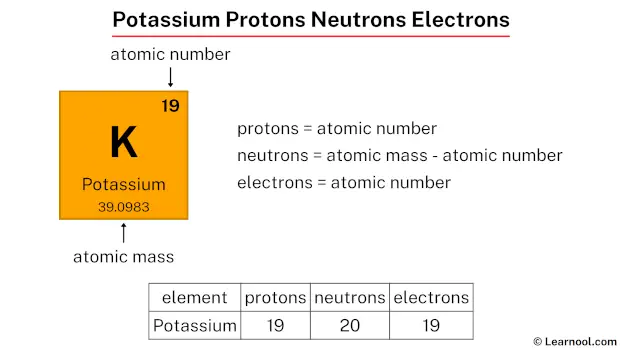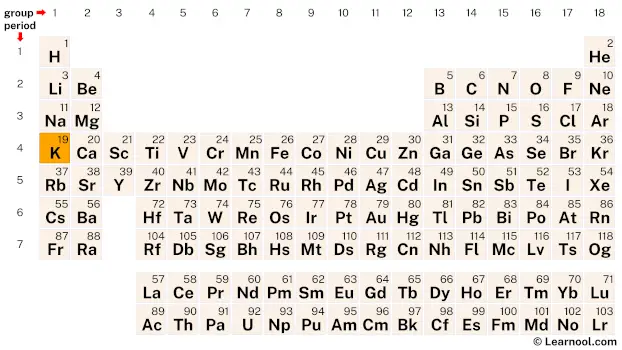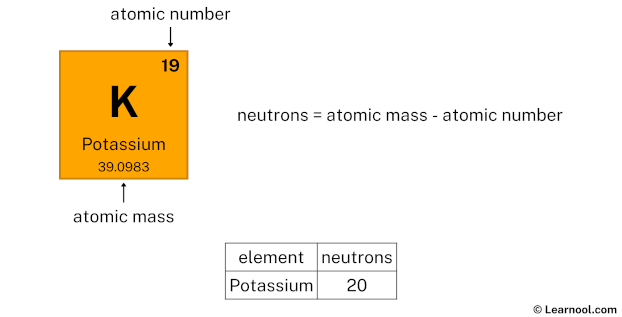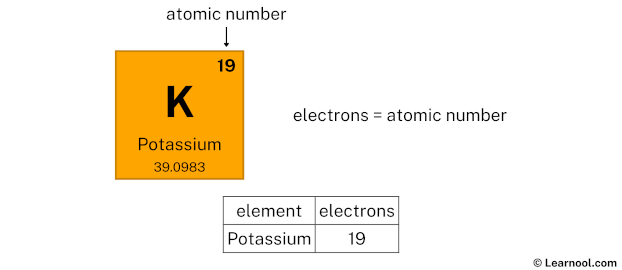
Potassium, classified as an alkali metal, has 19 protons, 20 neutrons, and 19 electrons.
Potassium protons
- Protons = atomic number
From the periodic table, find the atomic number of potassium.

The atomic number of potassium is 19. Hence, potassium has a total of 19 protons.
Potassium neutrons
- Neutrons = atomic mass – atomic number

The atomic mass of potassium is 39.0983, so we’ll take the roundup value as 39. And the atomic number of potassium is 19.
Subtract the atomic number (19) from the atomic mass (39). Hence, potassium has a total of 39 – 19 = 20 neutrons.
Potassium electrons
- Electrons = atomic number

The atomic number of potassium is 19. Hence, potassium has a total of 19 electrons.
Next: Calcium protons neutrons electrons
Related
More topics
External links
- https://www.quora.com/How-many-protons-neutrons-and-electrons-does-potassium-have
- https://material-properties.org/potassium-protons-neutrons-electrons-electron-configuration/
- https://homework.study.com/explanation/determine-the-following-information-for-potassium-a-atomic-number-b-number-of-protons-neutrons-and-electrons-in-the-neutral-atom-c-number-of-valence-electrons-d-tendency-to-gain-or-lose-valence-electrons-e-charge-on-the-ion.html
Deep
Learnool.com was founded by Deep Rana, who is a mechanical engineer by profession and a blogger by passion. He has a good conceptual knowledge on different educational topics and he provides the same on this website. He loves to learn something new everyday and believes that the best utilization of free time is developing a new skill.
